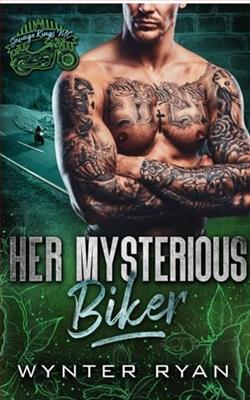Page 175 of The Beautiful Dead
“Hello?” Casius. His voice cut through the night like a blade, smooth and practiced, hiding the sickness beneath.
Remi turned to me, eyes wide. Not in fear. In hunger. Excitement. Because this wasn’t just about meeting an artist.This was about something darker. Something that had festered between us since the night Remi found him out.
The girl had been dying when he found her.
A fragile, broken thing, crumpled in the overgrown grass between the headstones, a whisper away from the very grave she should have been laid in.
And yet—she still clung to life. Barely. She was young. Too young. Her breath hitched in shallow, gasping sobs as her glassy eyes fixed on Remi, as if sensing that even in the presence of a monster, she had found something far worse.
But there was no fear in her gaze. Not at first. Not until he crouched beside her, tilted his head, and let his fingers brush the sticky warmth of her blood where it pooled in the dirt.
She flinched, her body trembling, but she didn’t have the strength to pull away.
“Who?” Remi had murmured.
The girl shuddered. And then she broke, spilling everything. Every horrifying, disgusting, vile truth about the man who had done this to her. She had idolized Casius Moreau. Had worshiped him.
A promising young artist, she had won a competition—a chance to learn from the master himself. But Casius had taken one look at her and decided she was not meant to be an artist.
Because she was art.
She was a canvas, a creation, a thing to be molded beneath his hands. And he had torn her apart like he was sculpting a masterpiece.
First, her mind—plucking at her thoughts, unraveling her sense of self, corroding her will like acid. Then, her body.
Breaking it. Defiling it.
Piece by piece.
She had never been meant to survive. And yet, somehow, she had crawled her way there, to the cemetery, to Remi.
Maybe fate was cruel, or maybe it was precise.
Because if she had dragged herself to anyone else, she would have been another forgotten corpse buried in a city that did not care. But she had found Remi. And Remi found me. That was the night he decided Casius Moreau had to die.
That he would suffer.
That his body, his life, his very existence would become another one of Remi’s masterpieces.
Casius Moreau was a man who thought he understood monsters. He was wrong. He thought he could hide his sins beneath oil paints and grandeur, beneath layers of pretense and careful curation.
But Remi and I? We saw through it. We saw the rot beneath the polish, the grotesque thing lurking behind the illusion of artistry. And tonight, we would make him pay for it.
Casius, of course, had no idea what he had invited into his home when he greeted me.
“Casius, it’s Domino DeMarco,” I muttered coolly, watching him on the intercom display.
“Ahhh, yes. How could I forget someone like you?” His words dripped into my ear, each syllable curling with poison. “Would you like to come up and see my current pieces?”
Beside me, Remi snorted, tension threading his body, his irritation flashing like the edge of a blade.
Neither of us answered. We didn’t need to.
We followed his instructions up the spiral staircase into his twisted sanctuary. Half-finished portraits lined the walls, their hollow stares following us as if they could sense what was coming.
The air was thick—oil paint, linseed, and something rancid. Something rotten.
Something human.















